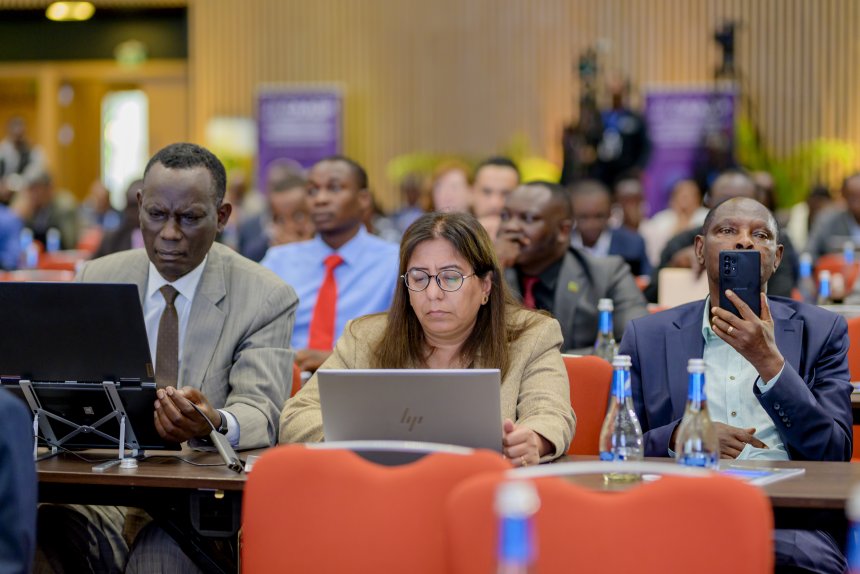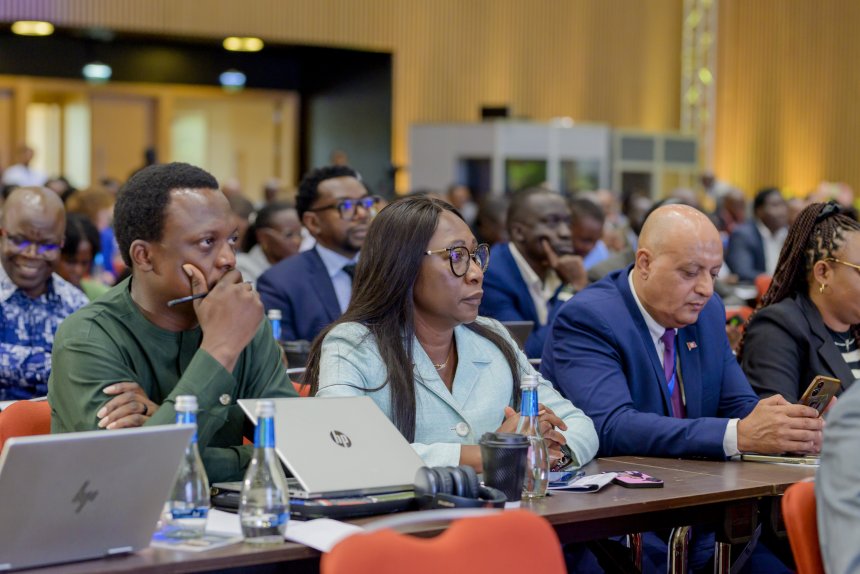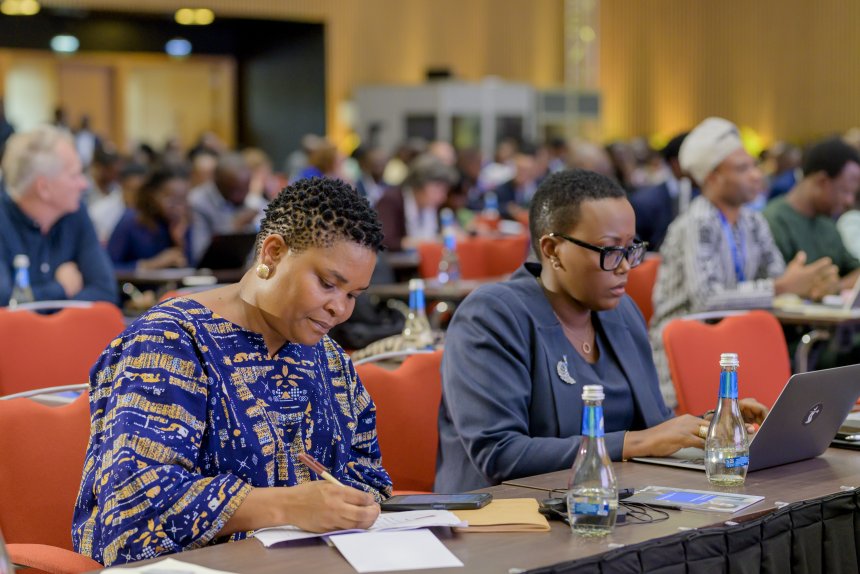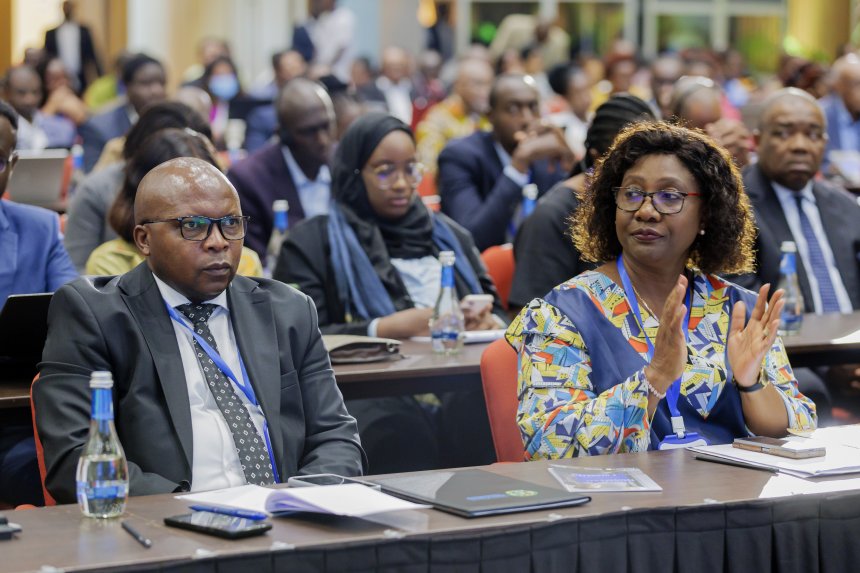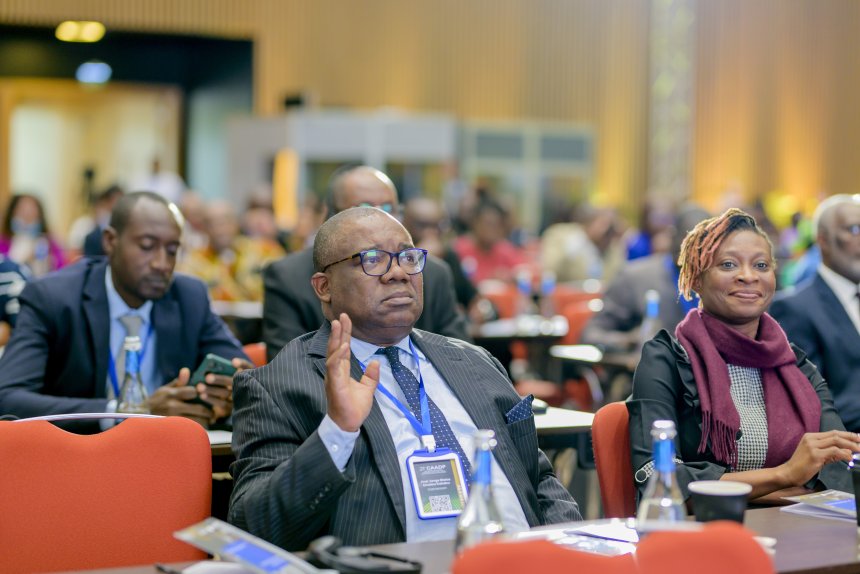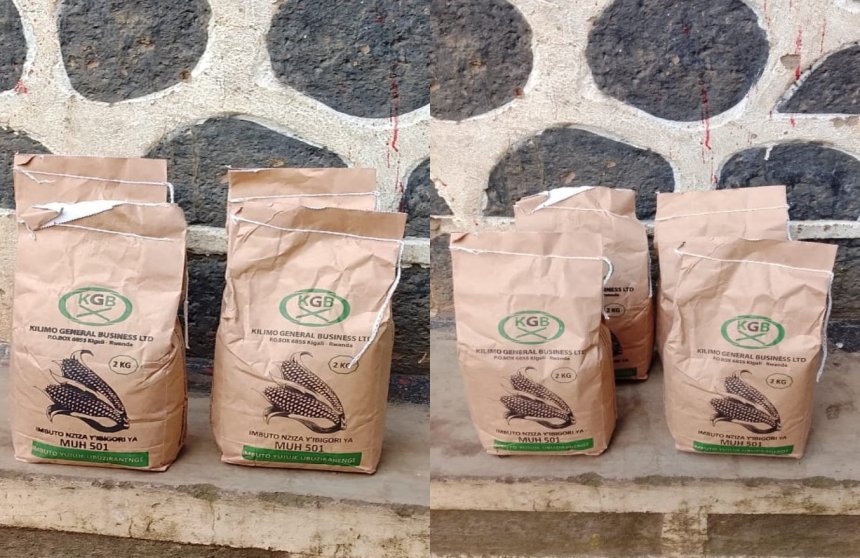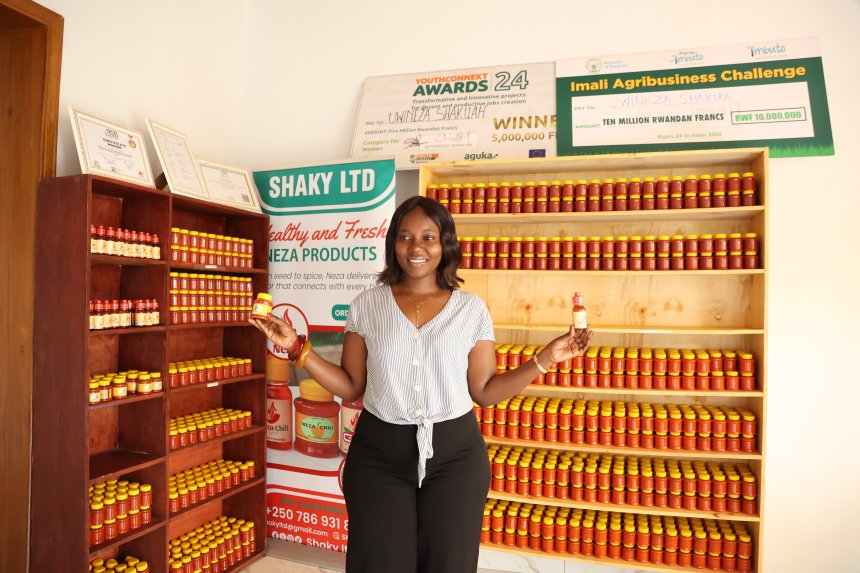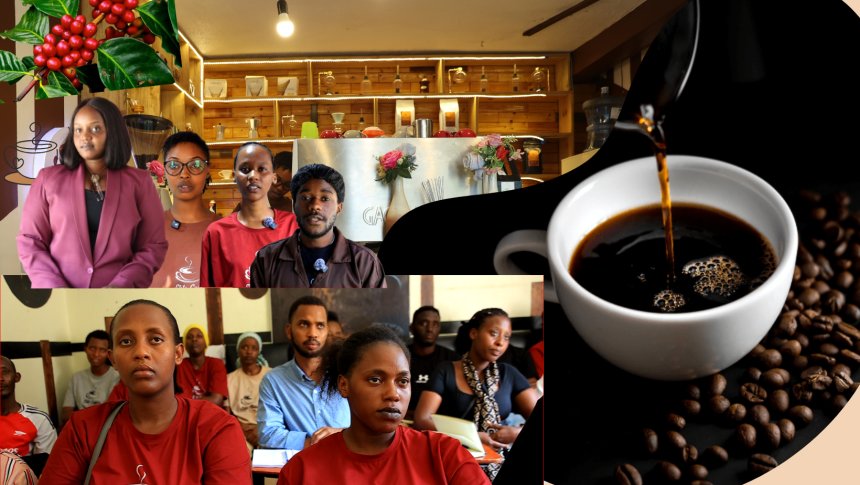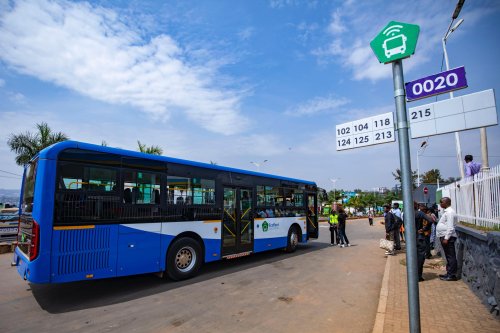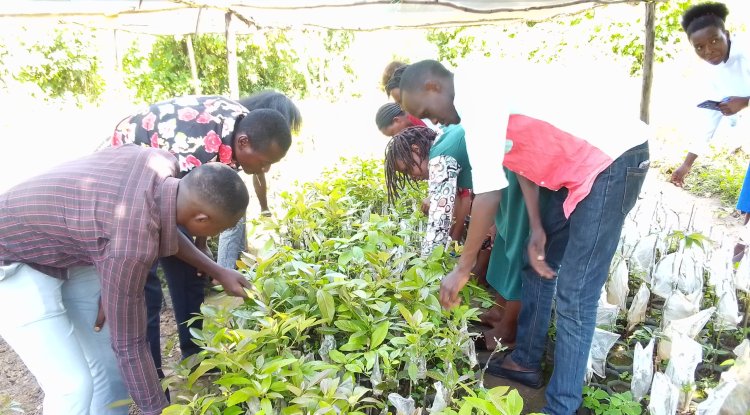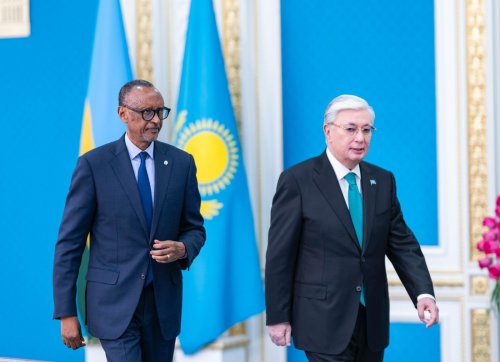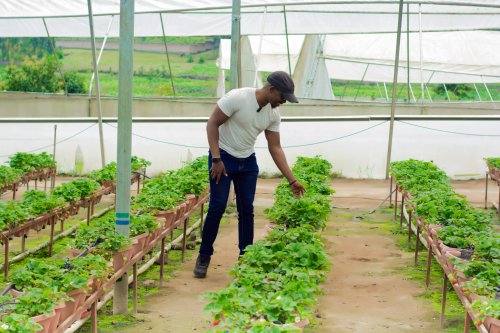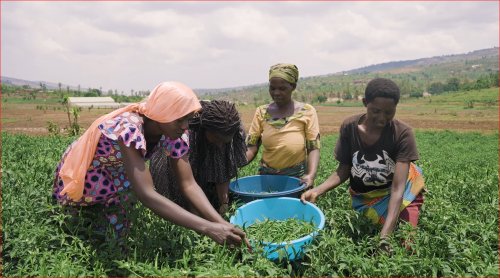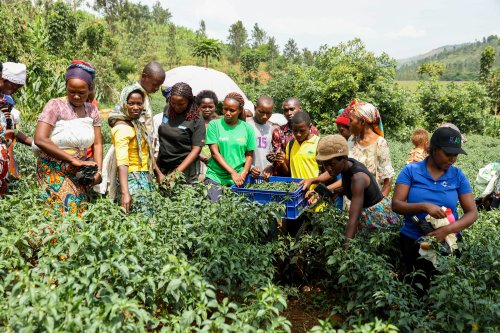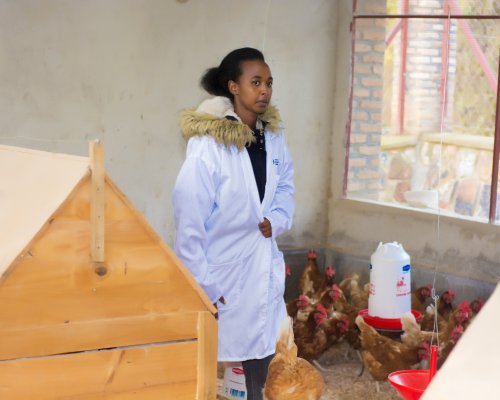Africa charts a new path from Malabo to Kampala: Leaders in Kigali call for accelerating just and resilient agrifood systems
On Wednesday October,29 2025, African leaders, policymakers, farmers, and development partners have convened in Kigali for the opening of the 21st Comprehensive Africa Agriculture Development Programme (CAADP) Partnership Platform (PP) and the 16th Africa Day for Food and Nutrition Security (ADFNS).
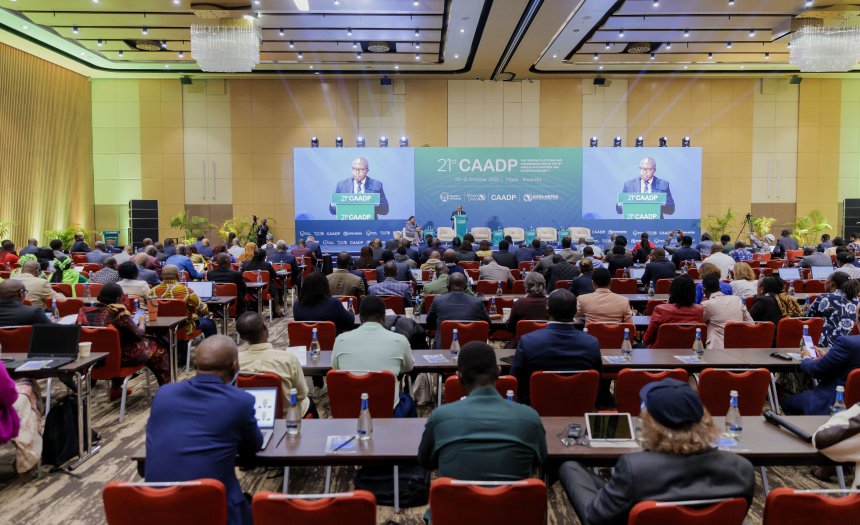
Held under the theme “From Malabo to Kampala: Accelerating Just, Resilient Agrifood Systems Transformation for Nutrition and Sustainable Growth,” the three-day event marks a pivotal moment as the continent transitions from the Malabo Declaration (2014–2025) to the Kampala Strategy and Action Plan (2026–2035).
The meeting, hosted by the Government of Rwanda in collaboration with the African Union Commission (AUC) and AUDA-NEPAD, provides a platform for stakeholders to assess progress and chart new strategies toward sustainable agricultural transformation across Africa.
In his opening remarks, Dr. Telesphore Ndabamenye, Minister of State in the Ministry of Agriculture and Animal Resources (MINAGRI), welcomed delegates to Kigali and called on African nations to transform commitments into measurable results.
“Africa’s future depends on how effectively we move from commitments to coordinated action,” she said. “We must sustain the momentum of the Malabo Declaration and build on it through the Kampala Strategy and Action Plan, ensuring that our agrifood systems are productive, inclusive, and resilient to shocks.”
Dr. Ndabamenye Highlighted that achieving food security requires more than simply increasing production volumes.
“Food security is not just about producing more; it is about producing better ensuring that every African, especially children and vulnerable groups, has access to safe, nutritious, and affordable food,” she noted.
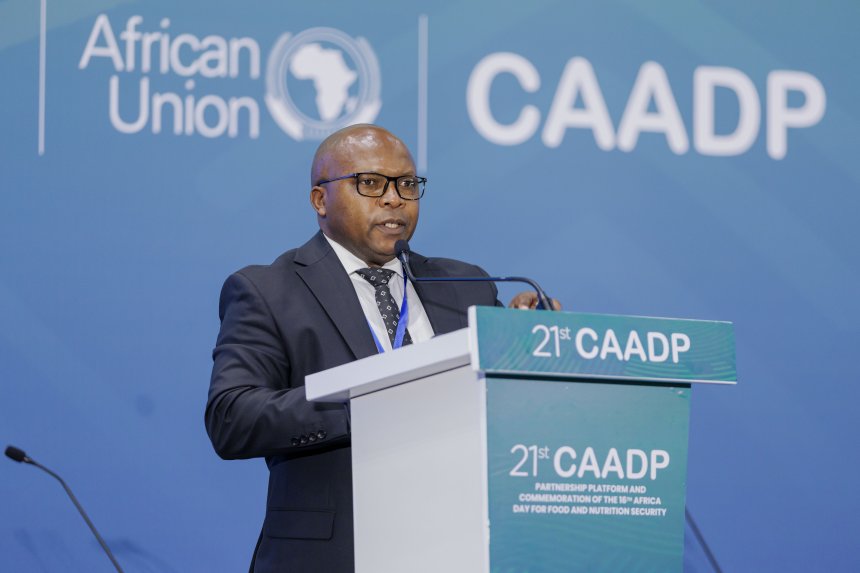 Dr. Telesphore Ndabamenye, Minister of State in the Ministry of Agriculture and Animal Resources
Dr. Telesphore Ndabamenye, Minister of State in the Ministry of Agriculture and Animal Resources
Delivering the keynote address, H.E. Moses Vilakati, Commissioner for Agriculture, Rural Development, Blue Economy, and Sustainable Environment at the African Union Commission, underscored the importance of unity and political will in achieving Africa’s food sovereignty.
“Rwanda’s performance in all the CAADP Biennial Reviews is living proof that transformation happens when political will is matched with practical implementation,” he said.
Commissioner Vilakati drew attention to the alarming state of food insecurity in Africa, where more than 280 million people remain undernourished and one in five children suffers from chronic malnutrition. He warned that Africa’s food import bill could exceed USD 150 billion annually by 2030 if current trends persist.
“No nation can be truly free if it cannot feed its people,” he declared. “Food security is not only a technical issue; it is a question of justice.”
Jean Paul Ndagijimana, AGRA’s Representative in Rwanda, urged participants to focus on measurable impact and shared accountability.
“The 21st CAADP Partnership Platform comes at a defining moment. It must mark the decade where we move from commitments to measurable outcomes through bold and collective action.”
Highlighting AGRA’s experience across the continent, Ndagijimana emphasized that sustainable transformation requires partnership where governments, private sector, and farmers’ organizations work hand in hand under strong local leadership.
“Transformation is possible when partnerships are anchored in capable and reliable local leadership. Governments must create enabling environments, the private sector must invest, and development partners must align with country-led strategies.”
Linking his remarks to the African Union’s 2025 theme, “Year of Reparations: Justice for Africans and People of African Descent,” the Commissioner said that true reparative justice goes beyond financial restitution.
“True reparative justice must mean reclaiming control over our food systems, restoring the dignity of our farmers, and creating fairer trade and investment pathways,” he emphasized.
Adding a voice from Southern Africa, Tuto Tsegafatso, an Agricultural Economist and CAADP Focal Point for Botswana, shared insights into his country’s progress in implementing the CAADP framework.
“I’m the one coordinating all the CAADP processes in Botswana. When you look at the first Biennial Review, we were on track. Although we faced challenges in Biennial Review 2 to Biennial Review 4, I’m happy to say that by Biennial Review 5, the results show we have really improved,” he explained.
Tsegafatso noted that youth participation in agriculture remains relatively low but is beginning to grow.
“The youth is not yet much into agriculture, but we’re seeing an improvement in participation recently. We are at an infancy stage, but the momentum is building,” he said.
The opening day was not only about policy it also highlighted the lived experiences of farmers. Beatha Uwimana, a smallholder farmer from Rwanda’s Eastern Province, said she was inspired by the discussions but urged leaders to ensure practical impact.
“We are ready to feed our continent, but we need access to affordable seeds, irrigation, and markets that value our produce. Climate-smart agriculture should not stay in documents, it must reach the fields,” she said.
Her message echoed the broader sentiment of the conference: that transformation must start at the grassroots level, where the realities of climate change, limited access to inputs, and market barriers continue to affect millions.
As the first day of deliberations concluded, delegates reaffirmed their resolve to accelerate the Kampala Strategy, deepen cooperation, and build an Africa that is self-reliant, just, and food-secure.
The Kigali meeting set the tone for the next decade of agricultural transformation, one grounded in accountability, inclusion, and justice.
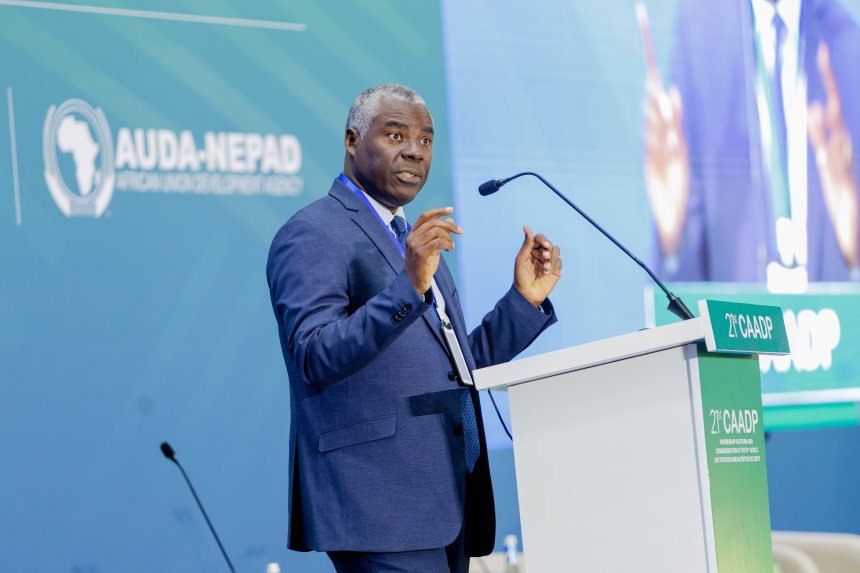 Jean Paul Ndagijimana, AGRA’s Representative in Rwanda, urged participants to focus on measurable impact
Jean Paul Ndagijimana, AGRA’s Representative in Rwanda, urged participants to focus on measurable impact
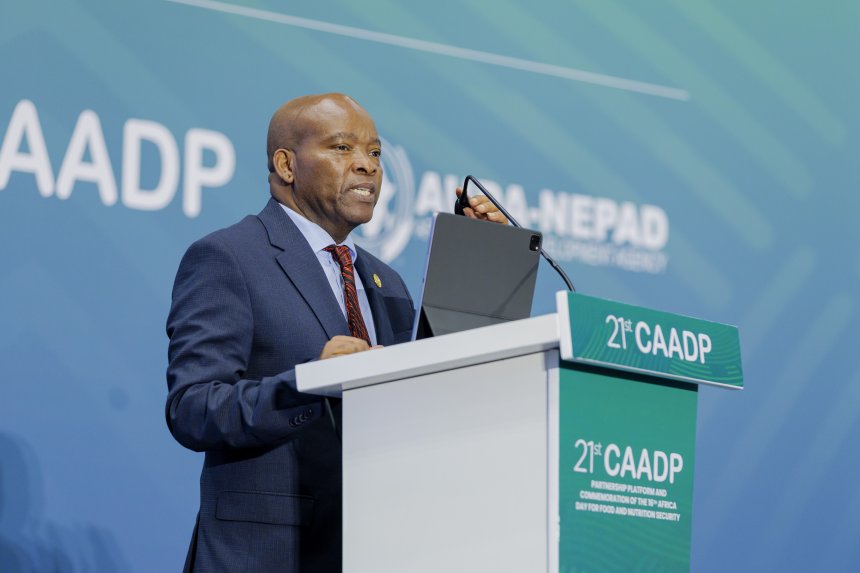 Moses Vilakati, Commissioner for Agriculture, Rural Development, Blue Economy, and Sustainable Environment at the African Union Commission
Moses Vilakati, Commissioner for Agriculture, Rural Development, Blue Economy, and Sustainable Environment at the African Union Commission
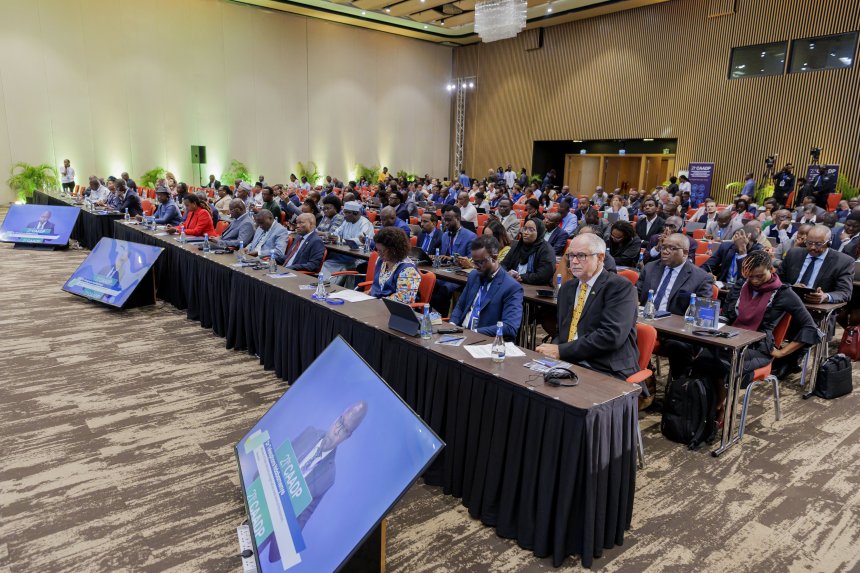 African leaders, farmers, policymakers, and partners gather in Kigali to shape a decade of just, resilient, and inclusive agrifood transformation
African leaders, farmers, policymakers, and partners gather in Kigali to shape a decade of just, resilient, and inclusive agrifood transformation
